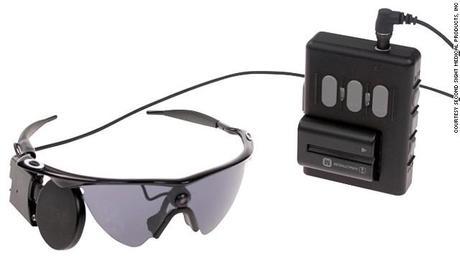
A bionic eye implant for a blind man gives him fundamental vision. Totally blind for over 20 years, Chris James is the very first British patient to be operated with a digital chip fitting similar to the ones used in cameras of the mobile phones. During the operation Sky News was present there and, later, after the switching on the chip, Chris was able to have a view of shapes roughly with outlines and basic colors. As per the doctors, gradually as the time ascends, he will be able to recognize faces as well when his brain will learn and adapt the traits of vision. “I’ve always had a thought that one day I would be able to see again,” he said. He also made a stamen that “This is not a cure, but it may put the world into some perspective.”It’ll give me some imagery rather than just a black world.”
Testing and study of the clinical implantation is being carried out by the surgeons of London’s King’s College Hospital and at Oxford’s John Radcliffe Hospital. They are taking trials of nearly 12 patients those who are suffering from the pigmentosa of retina. The disease which causes the damage of the retina is inherited by them. Retina damage here refers to the part of seeing which appears similar to a film that is present in an old camera. In Britain, nearly 25,000 families are severely affected by this type of visual condition and there exists no treatment for the same. The operation that involved fitting of a chip under the retina of Chris was extremely complex and was carried out by the surgeons in the Oxford. As per the ophthalmology professor of Oxford University, Prof Robert MacLaren, it was a great relief on knowing the operation had been a successful task. He stated that Chris is absolutely fine and also is doing great. He also added that, “With the first operation, with the new technology and the complexity of everything, we are all absolutely delighted with the result.” After this, the other patient who had undergone the same operation is also performing well.
Retina Implant Company had designed the sensor that is of only 3mm square and is inclusive of pixels amounting to 1,500. Light which is incident on the pixels is transformed into an electrical signal. Nerves pick this signal up and send to the brain’s region which is responsible for the visual processing. Patients happen to see black and white image that is in the granular form. As per the Prof MacLaren, the areas are to be broadened in coming days for better and sharper resolution. The technology costs £50,000 to £75,000 for the purpose of training.

